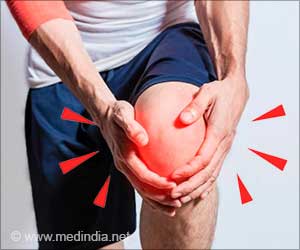Those contracting Hepatitis C could also be more vulnerable to type 2 diabetes, by as much as three to four times, Australian study reveals.
Those contracting Hepatitis C could also be more vulnerable than others to type 2 diabetes, by as much as three to four times, Australian study reveals. Thus far Hepatitis C had been linked only to liver cirrhosis and cancer.
In studying the insulin resistance of 29 people with Hepatitis C, researchers have confirmed that they have high insulin resistance, a precursor to diabetes, whereas almost all insulin resistance occurs in muscle, with little or none in the liver.Dr Kerry Lee Milner and Professor Don Chisholm from Sydney’s Garvan Institute of Medical Research, in collaboration with Professor Jacob George from the Storr Liver Unit, University of Sydney at Westmead Hospital, have published their study in the prestigious international journal, Gastroenterology, now online.
Insulin, a hormone made by the pancreas, helps the body use glucose for energy. The two most important organs that respond to insulin are the liver and muscle. A healthy liver responds to insulin by not producing glucose, while healthy muscle responds by using glucose. An insulin resistant liver produces unwanted glucose, while insulin resistant muscle cannot absorb it from the bloodstream, leading to high levels of sugar in the blood.
“Contrary to all expectations, not only did we find no significant insulin resistance in the liver of the patients in the study, half of them suffered from a strain of Hepatitis C that causes about three times the normal level of fat to accumulate in the liver,” said Professor Chisholm.
“The fifteen people with very high levels of fat in the liver had the same degree of insulin resistance as the fourteen that didn’t have fatty livers.
“A number of important investigators around the world have been arguing that fat in the liver is an extremely important determinant of insulin resistance, perhaps the most important. At least in this context, we’ve shown that not to be the case.
Advertisement
“In our study, we gave intravenous glucose, a specific stimulus to insulin secretion, and showed that insulin secretion was not impaired in Hepatitis C patients compared to our control group.
“More work now needs to be done into why Hepatitis C causes insulin resistance in muscle. That will give us better insight into the behaviour of the disease.
“At this stage, it is helpful for people with Hepatitis C to understand insulin resistance and what it can mean for them. If they have relatives with Type 2 diabetes, they will be genetically prone to developing it themselves and so would be advised to manage their diets very carefully and take plenty of exercise – to slow onset,” Professor Chisholm
noted.
Source-Medindia
GPL














